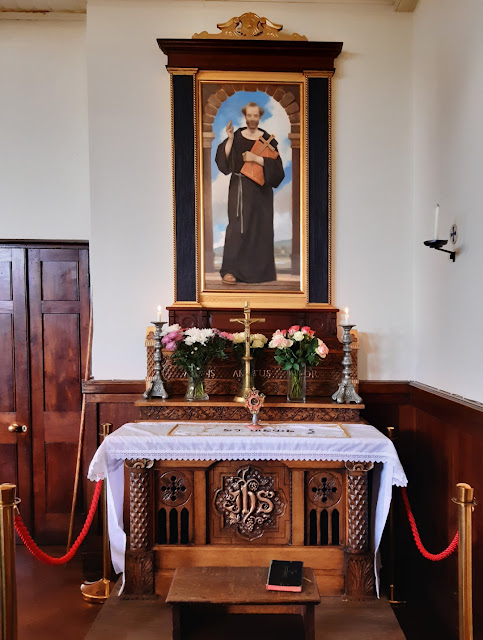Molotov cocktail of planetary magnitude
A Vaticanista looks at the background to the publication of extracts from Light of the World by L'Osservatore Romano.
On his blog Sacro e Profano, Andrés Beltramo has a fascinating article Benedicto XVI no es un ingenuo ("Benedict XVI is not naive"). He says that a few hours before the worldwide launch of the Light of the World, Fr Federico Lombardi expressed his fears to Pope Benedict about the impact of his having agreed to do a book length interview with Peter Seewald:
Apparently, Lombardi's concern was met with the "knowing smile of a Pope who knew what he was doing"; he knew that his words could be misinterpreted and that he was going to talk about condoms anyway. Beltramo feels that the great value of the Light of the World is its humanity and candour, and that nobody needs to worry about danger to the papal magisterium because Pope Benedict has given the Church a particular gift, that of affirming that Popes have an opinion outside of the magisterial office and that in such matters they can be wrong.
Later in the article, Beltramo comments on the publication of extracts from the interview on Saturday by L'Osservatore Romano. Apparently there is no editorial work on L'Osservatore done on Sunday and the editor, Giovanni Maria Vian, did not want to be lagging behind the Italian papers who would be publishing stories on the Monday. In addition, supposedly, the Liberia Editrice Vaticana did not have a co-ordinated publishing strategy, and excerpts from the book had been given out all over the place. Beltramo describes what happened next in media terms as,
In fact, comment on media gaffes is not absent from the Pope's answers in the interview itself. Speaking of the lifting of the excommunications of the SSPX bishops, the Holy Father says that people did not understand the canonical issues involved and that "in this matter our public relations work was a failure." (p.22) In chapter 12, the question of Bishop Williamson is raised by Peter Seewald. There, Pope Benedict continues the theme:
On his blog Sacro e Profano, Andrés Beltramo has a fascinating article Benedicto XVI no es un ingenuo ("Benedict XVI is not naive"). He says that a few hours before the worldwide launch of the Light of the World, Fr Federico Lombardi expressed his fears to Pope Benedict about the impact of his having agreed to do a book length interview with Peter Seewald:
"Holiness, in the current media environment, would you not think a book like this is a huge risk?"Perhaps a "dynamic equivalence" translation would be Sergeant Wilson's "Do you think that's wise, Sir?"
Apparently, Lombardi's concern was met with the "knowing smile of a Pope who knew what he was doing"; he knew that his words could be misinterpreted and that he was going to talk about condoms anyway. Beltramo feels that the great value of the Light of the World is its humanity and candour, and that nobody needs to worry about danger to the papal magisterium because Pope Benedict has given the Church a particular gift, that of affirming that Popes have an opinion outside of the magisterial office and that in such matters they can be wrong.
Later in the article, Beltramo comments on the publication of extracts from the interview on Saturday by L'Osservatore Romano. Apparently there is no editorial work on L'Osservatore done on Sunday and the editor, Giovanni Maria Vian, did not want to be lagging behind the Italian papers who would be publishing stories on the Monday. In addition, supposedly, the Liberia Editrice Vaticana did not have a co-ordinated publishing strategy, and excerpts from the book had been given out all over the place. Beltramo describes what happened next in media terms as,
"a molotov cocktail of planetary magnitude, the worst Vatican communications gaffe for a long time."Beltramo is convinced that there was no conspiracy in the Vatican related to the leaked extracts, just the desire of Vian to get the story out before the Italian papers. Perhaps that is so - but remember that part of the Vatican culture is that whether it is a molotov cocktail of planetary magnitude or just a little embarrassing mistake in the office, the tendency is to look quickly for someone else (more junior) to blame.
In fact, comment on media gaffes is not absent from the Pope's answers in the interview itself. Speaking of the lifting of the excommunications of the SSPX bishops, the Holy Father says that people did not understand the canonical issues involved and that "in this matter our public relations work was a failure." (p.22) In chapter 12, the question of Bishop Williamson is raised by Peter Seewald. There, Pope Benedict continues the theme:
Unfortunately, the public relations work was not done well from our side, so that the real, canonical substance and the limits of this process were never made clear. Then, to top it all off, there was the total meltdown with Williamson, which we had unfortunately not foreseen, and that is a particularly distressing circumstance. (p.121)Peter Seewald then asked the Holy Father whether he would have signed the decree lifting the excommunications if he had known that among the four bishops there was a person who denied the existence of the Nazi gas chambers. The Pope replied:
No. If I had known, the first step would have been to separate the Williamson case from the others. Unfortunately, though, none of us went on the Internet to find out what sort of person we were dealing with. (p.121)Regarding the Regensburg address, the Holy Father's comment on the media reaction is also of interest.
I had conceived and delivered the lecture as a strictly academic address, without realizing that people don’t read papal lectures as academic presentations, but as political statements. The political reading ignored the fine web of the argument, ripping the passage out of its context and turning it into a political statement, which it wasn’t.Quite a few Catholics fail to understand the distinction between the private opinions of a Pope (with which we may disagree), his authentic, non-infallible magisterium (to which we should give the religious submission of mind and will), and his extraordinary infallible magisterium in which he enjoys that infallibility which Christ willed His Church to enjoy in defining matters of faith and morals. It is true that people do not read papal lectures as academic presentations. Unfortunately, it is also true that people do not read unprepared remarks to a journalist as informal comments.



